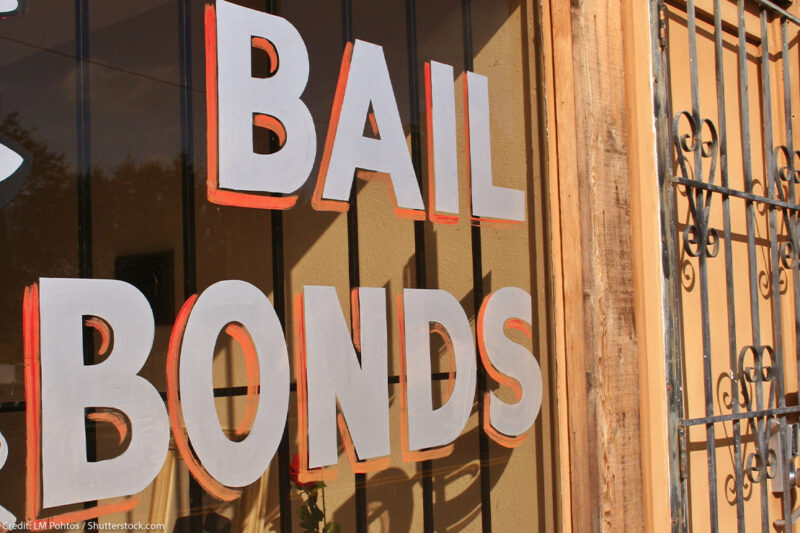This Canadian Company is Bankrolling the Predatory Bail Industry


In recent months, we have witnessed a historic wave of Black Lives Matter protests for racial justice — examining the racism in the criminal legal system and every other aspect of society, from education, to healthcare, to housing. A number of corporate leaders in the United States, Canada, and around the world have recognized the growing public anger at systemic racism and have made historic statements committing to change. We commend these statements — and also recognize how important it is that these words are .
��
Take, for instance, Prem Watsa. Watsa is the CEO and chairman of Fairfax Financial and is often referred to as “Canada’s Warren Buffett.” Earlier this month, he of the “Canadian Council of Business Leaders Against Anti-Black Systemic Racism” and : “[t]he time for passing the buck is over. As business leaders in Canada, we have a responsibility to not only recognize that anti-Black systemic racism exists in this country but also take meaningful steps to end it.”
��
On Monday, Watsa spoke at the BlackNorth Initiative Summit where he and other Canadian business leaders committed to take substantive actions to end anti-Black systemic racism. Watsa’s leadership on this issue is important and should be celebrated. It also calls into question the business practices of Fairfax Financial, which is by far the largest insurer of the for-profit bail industry in the U.S.
��
The ACLU and Color Of Change have called on Watsa to immediately exit the predatory bail insurance industry in the United States, which disproportionately impacts communities of color, prolonging incarceration for those who cannot afford bail, and trapping others in cycles of debt.
��
Every day, hundreds of thousands of people sit trapped behind bars in the United States — innocent in the eyes of the law, yet incarcerated because they cannot afford bail. There is no path to ending mass incarceration in the United States without ending this current system of wealth-based, pretrial detention.
��
The U.S. is one of just two countries in the world where a for-profit bail system allows private corporations to be the arbiter of freedom, basing decisions on who to set free and who to detain on the ability to pay. This criminalizes poverty and reminds us that our “justice” system is more often designed with profit in mind. A 2017 report unmasked a small group of insurance companies — of which Fairfax Financial is by far the largest — that sit behind the thousands of storefront bail bond agencies, taking a cut of each bond.
��
But the tide is shifting. The recent divestment of three of the four largest companies backing the for-profit bail industry — , Tokio Marine, and Randall & Quilter — suggests that companies are starting to realize it is financially and politically untenable to stake their profits on the exploitation of people by the criminal legal system.
��
Fairfax continues to hold out, expanding its bail presence, and fighting reforms, even as the industry shrinks and becomes rightfully marginalized. The Canadian insurance conglomerate has become the largest backer of bail bonds in the U.S. Not only has it refused to divest from the predatory industry, it has expanded, stepping in to take the place of others that have made the responsible decision to exit. The features a “Fight Bail Reform” page, and Fairfax has spent hundreds of thousands of dollars to fight bail reform.
��
It’s companies like Fairfax Financial that are keeping the bail bonds industry alive in the United States, despite the fact that for-profit bail is not even legal in Canada and is met with harsh punishment. In Canada and is considered an . We’re calling on Fairfax Financial and its founder Prem Watsa to stop participating in this shrinking pariah of an industry.
��
The mass exodus from bail by most major financial actors comes after the industry has been repeatedly exposed for the ways it exploits Black and Brown communities, props up injustice, and often relies upon extortion, conspiracy, and other illegal practices in order to conduct its business. It comes after bail bond advertising was banned from Google and Facebook due to the industry’s role exploiting desperate families. And it comes as states and counties across the United States —�� with the help of legislators, courts, and progressive prosecutors — are dramatically reducing or ending the use of money bail altogether.��
��
As important as Fairfax is to the U.S. bail industry, bail insurance represents a tiny part — 0.16 percent — of its overall insurance business. It could divest easily and quickly. Doing so would put Prem Watsa’s money where his mouth is.
��
We applaud Watsa’s commitment to taking meaningful action to end anti-Black systemic racism. He should begin by ensuring that his company halts its efforts to fight bail reform and exits the predatory bail insurance industry.


